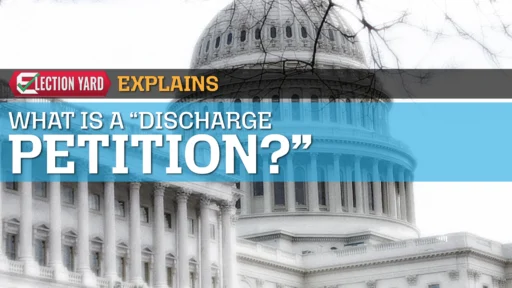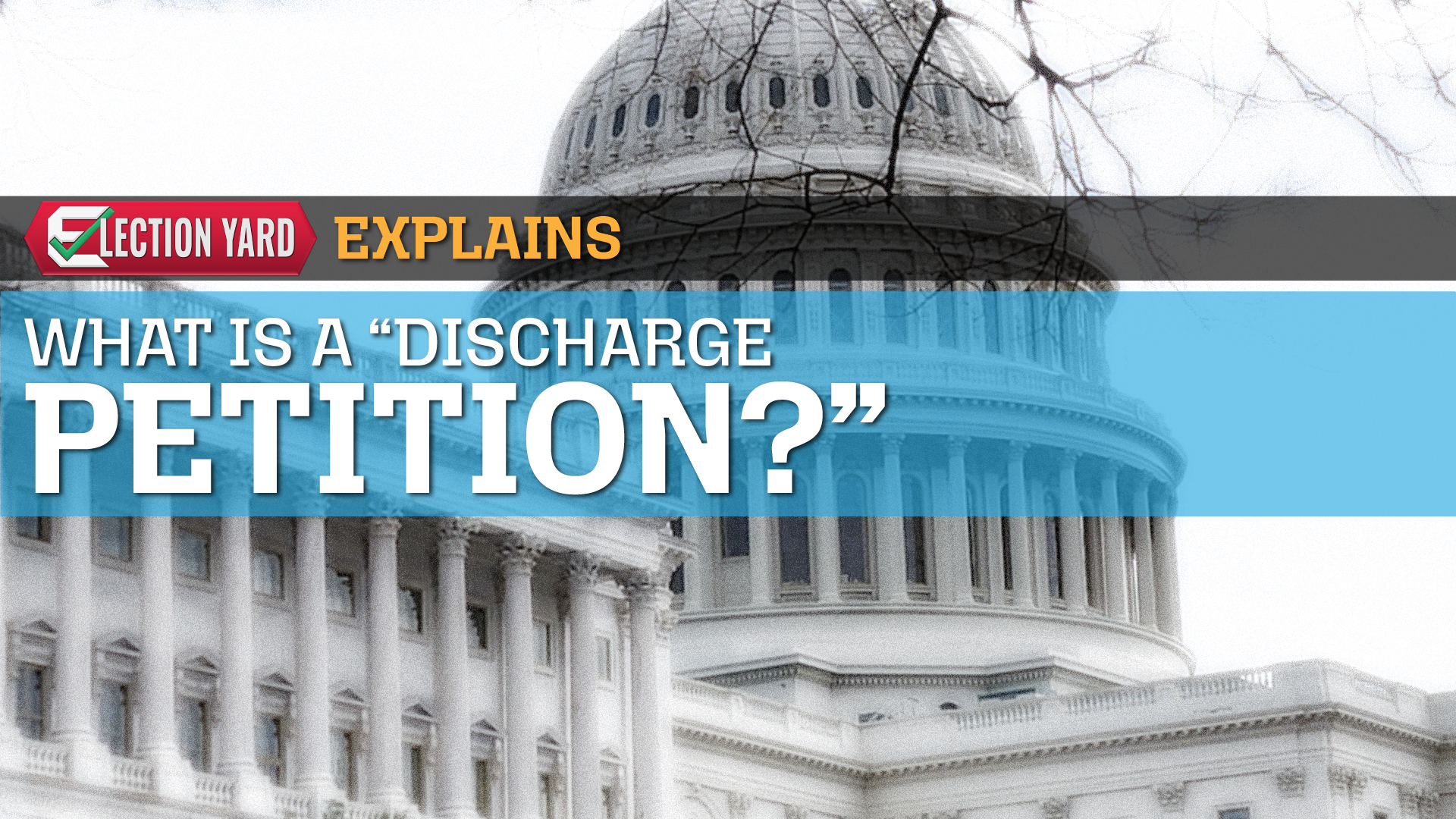In recent weeks, you may have heard about the possibility of a “discharge petition” in Congress. Perhaps you do not know what that is, or why it might be important now. Election Yard is here to help.
There is one in particular that has been in the news, and if it comes to pass, it could truly shake up American politics.
The Basics: What Is a Discharge Petition?
Under ordinary circumstances, the House majority leadership decides which legislation comes to the floor for a vote. At the committee level, the chairperson does so. This is the way of the world in Congress. However, there is a way for members outside of the leadership to compel action on legislation which is stuck in committee.
Enter the “discharge petition.” Filed with the House Clerk, this petition has an objective: It discharges a bill from committee and brings it directly to the House floor. The petition does exactly what it sounds like it does. It has not always existed in House procedure – in fact, relatively speaking, it is a more recent development – but it has its uses.
In order for such a petition to take full effect, it needs to receive 218 signatures from sitting members. This is a simple majority of the full US House membership of 435. The threshold makes sense: It demonstrates that a majority of the House wishes to consider a bill, whether or not leadership does. 218 is the number needed regardless of whether or not there are vacancies.

Why Is It in the News in 2025?
Rep. Thomas Massie, a Republican from Kentucky and occasional Trump critic, is circulating a petition. According to the Clerk of the US House, the official designation is Discharge Petition Number 9.
The objective of this particular petition is to discharge H.Res. 581 from committee. Without getting too deep in the weeds, it would force floor action on compelling the Department of Justice to release the so-called “Epstein files.” The latter has been a hot-button topic for years around Washington and in political circles. Its contents, while unknown to the public now, are suspected to be hugely damaging to those named in them, given Epstein’s criminal convictions.
Discharge Petition Number 9 has 217 signatures, one short of what it needs to take full effect and succeed.
Discharge Petition: Why Adelita Grijalva Is Important
On September 23, there was a special election in the 7th District of Arizona. It was won by Adelita Grijalva, a Democrat and the daughter of the late representative Raul Grijalva. She has said that she would be the 218th signature on the petition. All other Democrats and just a handful of Republicans have signed.
However, as of October 23, one month later, she has not been sworn in by House Speaker Mike Johnson. Among other things, Johnson has claimed that he does not have to do so while the House is out of session. Johnson wants to keep the House closed during the government shutdown.
On this website, we pledge to keep it real at all times. We can therefore be honest and say Grijalva’s not being sworn-in is intentional. By convention, she would have been sworn in shortly after winning her election in September. The shutdown is no excuse, either, as it began a week after she won her election. Furthermore, it seems that the House should be in session during a government shutdown.
Enough editorializing for now. As for whether or not she hasn’t been sworn-in because of the discharge petition, you may all draw your own conclusions without our help.
Current Summary of Events
After taking all of the above, this is where we stand:
- A “discharge petition” is a procedural mechanism by which any member can compel House floor action on a piece of legislation. 218 members need to sign it for success.
- There is an active petition in the House to force a vote on making the “Epstein files” public. It is one signature short of succeeding with 217.
- Democratic Rep.-Elect Adelita Grijalva has said she would sign the petition and be the signature to put it over the top. However, she was elected in September but has not yet been seated by Speaker Mike Johnson. Therefore, the petition process is still not complete. If one more member signed, it would reach 218, but it would have to be a Republican if not Grijalva, which is unlikely.
Successful Discharge Petitions in Recent History
Having a successful petition is not as rare as, say, a motion to vacate the chair in the House. However, it does not happen often. The petitions themselves are not rare, but succeeding at them is.
While Massie’s petition is the ninth offered in the 119th Congress so far, that means there were eight others. Just one, offered by a Republican, reached 218 signatures. This one was on proxy voting in Congress.
In the 118th Congress, which ran from 2023 to 2025, there were 20 discharge petitions filed with the Clerk. Just two received 218 signatures. Often enough, these petitions are circulated by members of the minority party, meaning it would already be unlikely for them to succeed.


